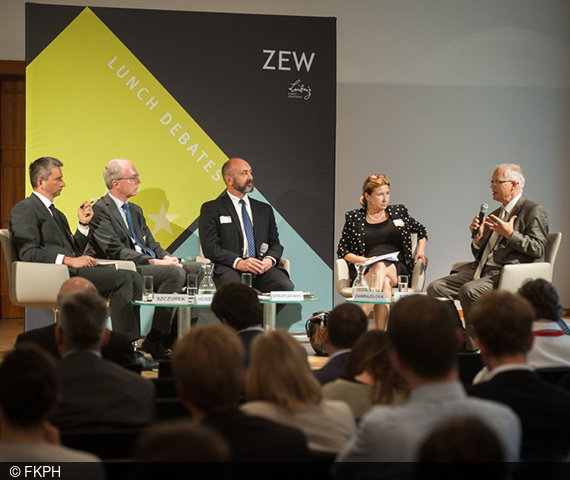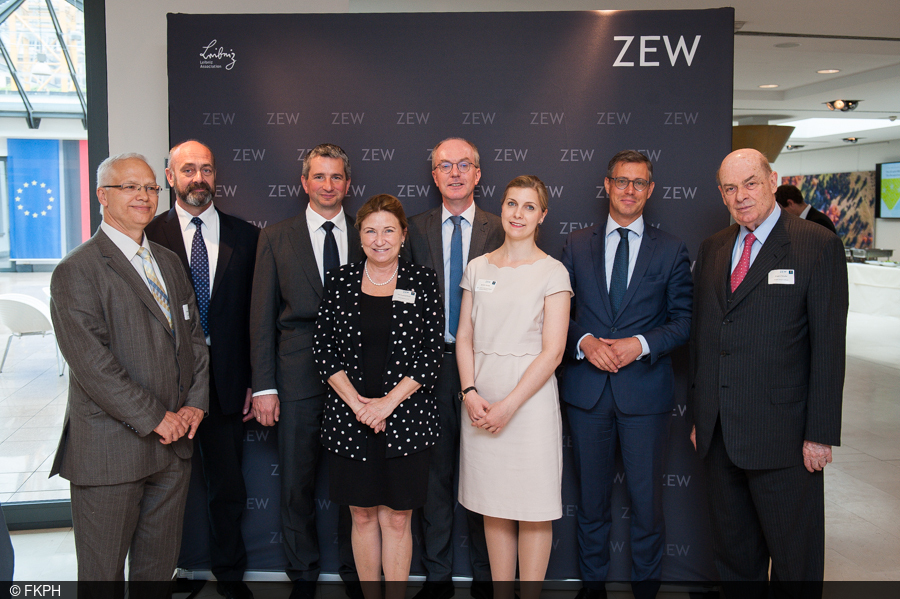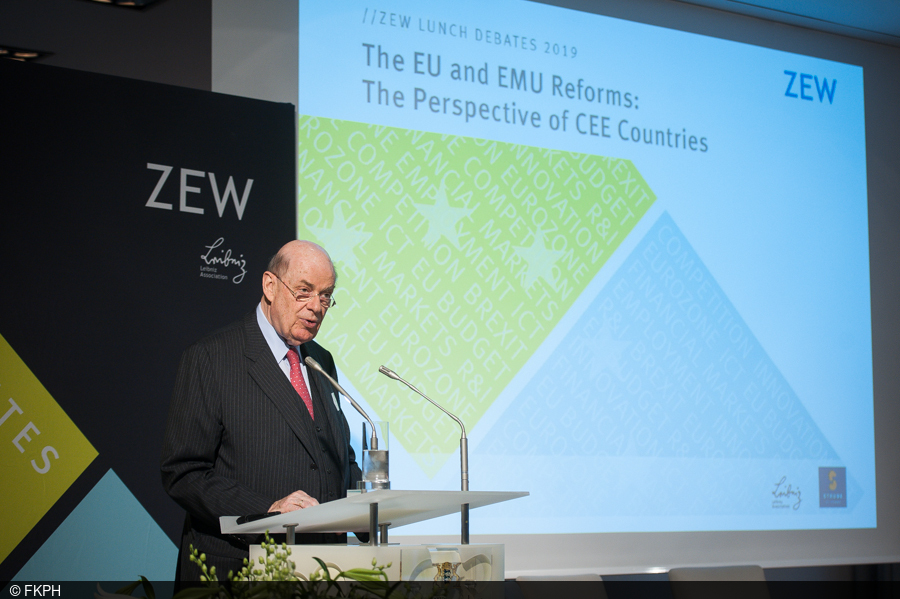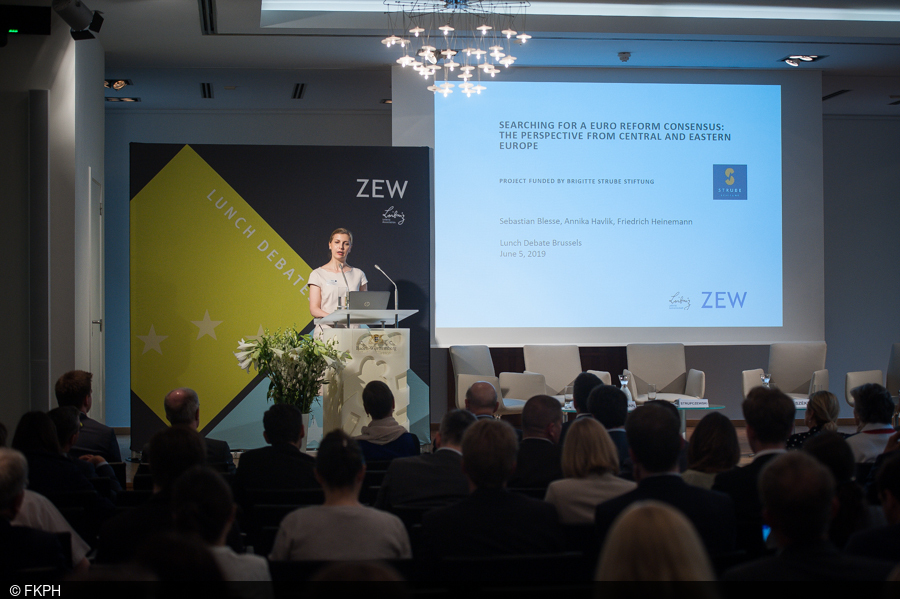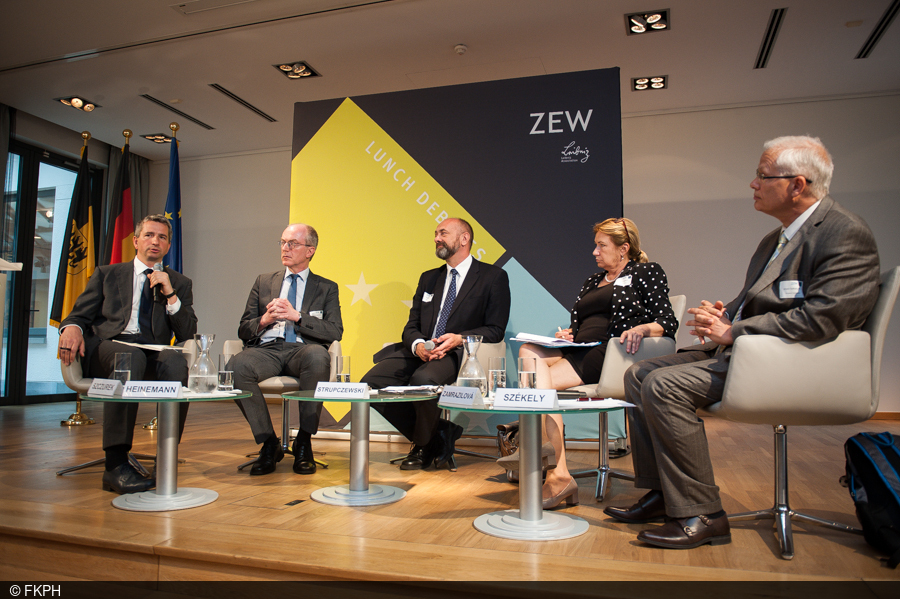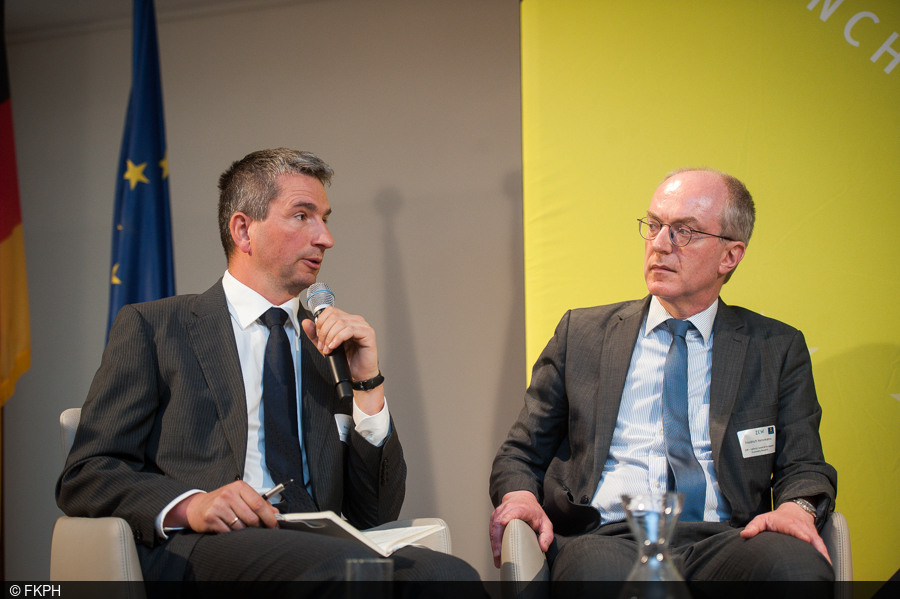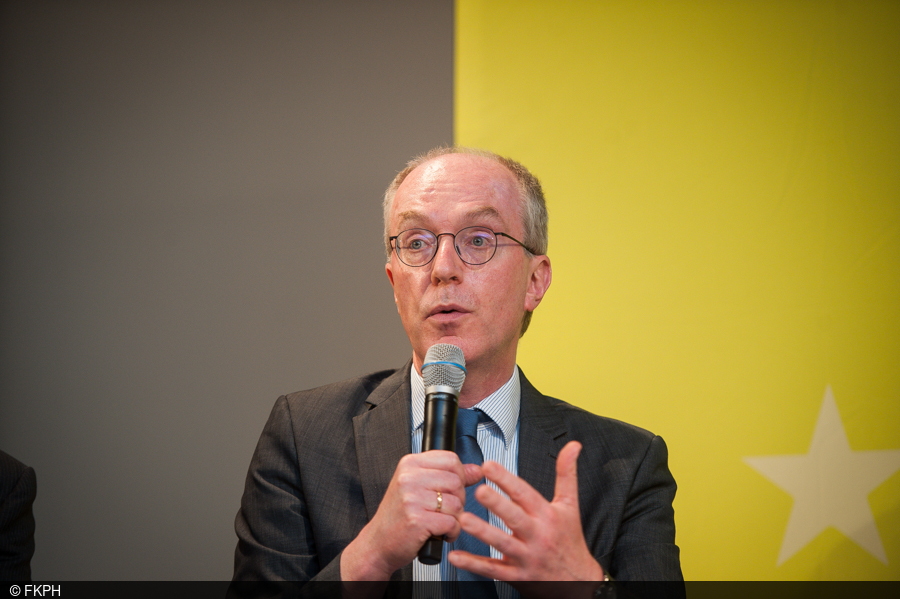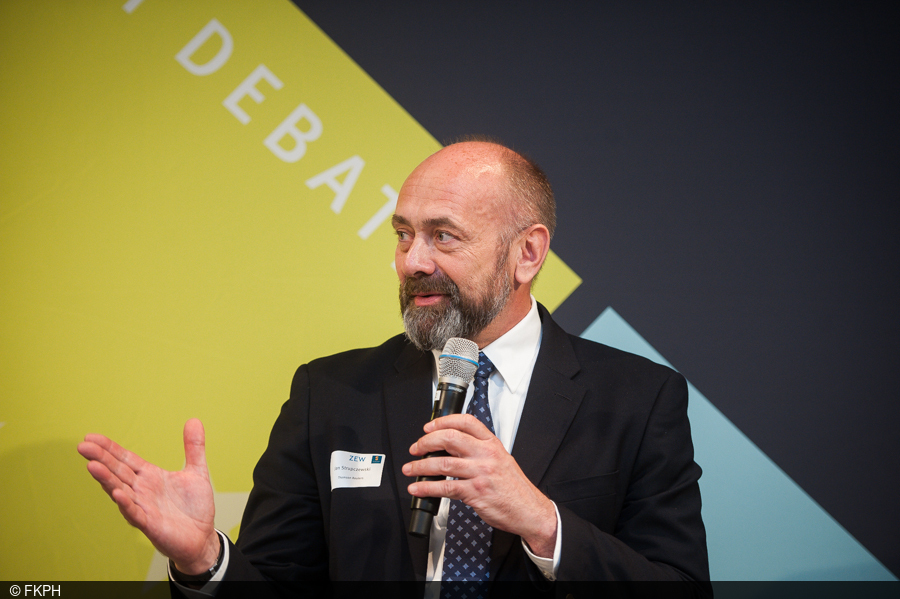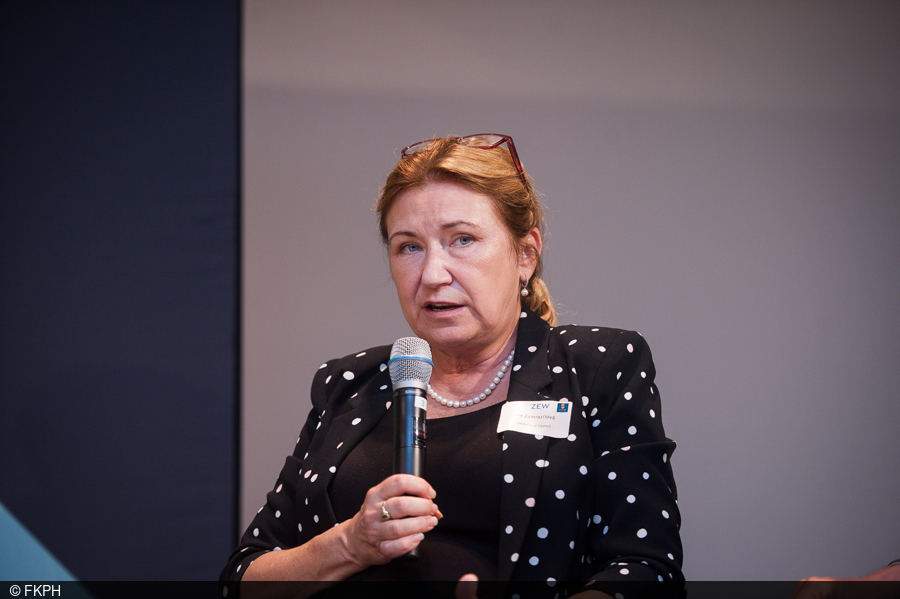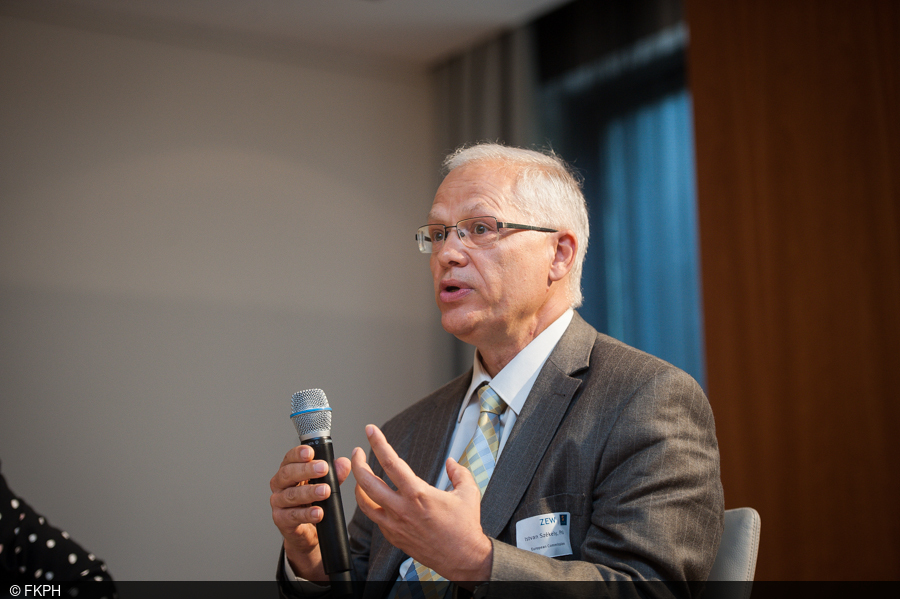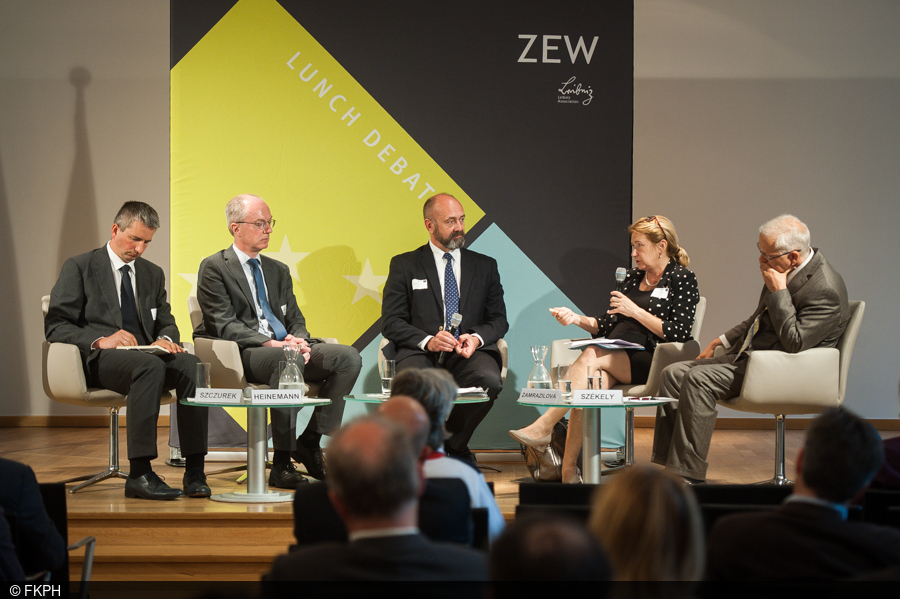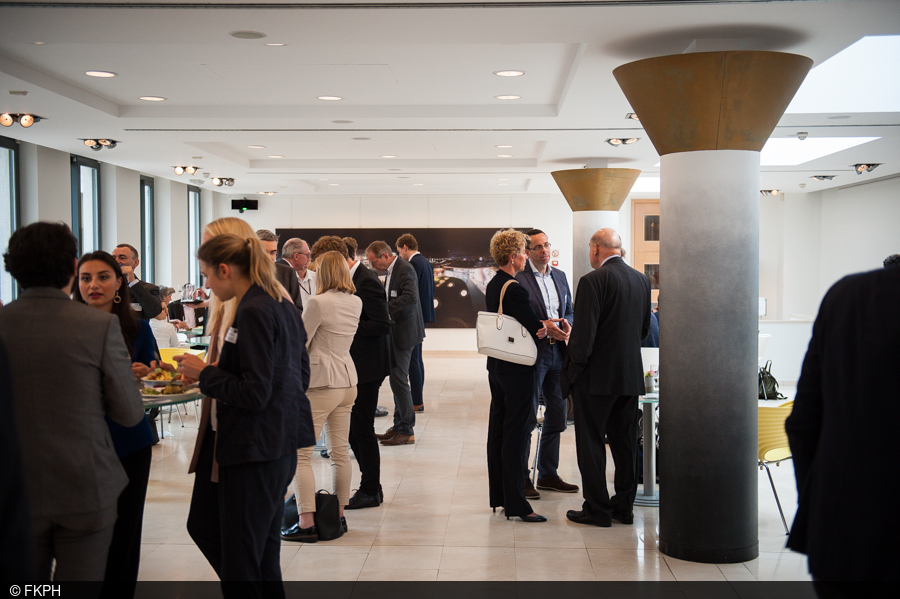The Eurozone’s Most Important Currency Is Credibility
ZEW Lunch Debate in BrusselsPanel Debate Spotlights Perspective of CEE Countries on the Euro
If the European Union wishes to integrate its Eastern Member States into the eurozone, it will have to put together a comprehensive reform package for the European Economic and Monetary Union that is above all credible. While the Central and Eastern European (CEE) countries are generally not opposed to the euro and – in terms of the Maastricht criteria – are in a better position than other euro states, there has so far been a prevailing scepticism with regard to joining the eurozone. The main reason for this is that the benefits that the CEE states derive from eurozone membership do not exceed the costs. These issues were the focus of the most recent ZEW Lunch Debate.
Around 100 guests followed the invitation of the ZEW – Leibniz Centre for European Economic Research to attend the debate on “The EU and the Reforms of the European Economic and Monetary Union”, held at the Brussels Representation of the State of Baden-Württemberg to the EU. A study on the perspective of CEE countries on the euro, conducted by ZEW with support of the Brigitte Strube Stiftung, provided the basis for the panel discussion.
“The study broadens the scope of the ongoing discussion on monetary union reforms by adding an important normative aspect,” said Professor Jürgen Strube, former chairman of the executive board at chemical company BASF and long-standing member of the ZEW supervisory board, at the beginning of the event. According to Strube, what both Western and Eastern European countries agree on in this dispute is that there is considerable room for improvement. During her speech before the panel discussion, ZEW researcher Annika Havlik, one of the authors of the study, gave insights into the areas where there is potential for improvement.
“Support for the eurozone has been decreasing significantly”
“In recent years, the support for the eurozone has been decreasing significantly among CEE Member States,” explained Havlik. Romania is the only country that officially advocates a single currency, but even there approval has steadily declined. The ZEW analysis has provided evidence that the CEE states meet the so-called Maastricht criteria with regard to public debt and deficit, and that they have caught up considerably in terms of GDP per capita, outperforming several southern European Member States. “In contractual terms, the CEE countries meet all the requirements for joining the eurozone. This decision will, however, be based on cost-benefit considerations,” concluded Havlik. The concrete reform plans for the euro area must therefore be presented as a package of solutions that provides for a structured procedure instead of mutual cost sharing in the event of excessive public debt.
In the ensuing debate, moderated by Reuters reporter Jan Strupczewski, the panellists highlighted the CEP countries’ chances of joining the eurozone. The chairwoman of the Czech Fiscal Council, Dr. Eva Zamrazilová, stressed that a genuine and realistic convergence between East and West must first take place before the Czech Republic would consider joining the eurozone. According to Zamrazilová, the current debate on monetary union reforms focuses exclusively on risk-sharing and market discipline. When it comes to a common currency, however, ensuring uniform and fair conditions of competition are of crucial importance. “The euro, by itself, is no guarantee for economic growth. This also requires reforms at the national level,” concluded Zamrazilová.
Istvan Székely, PhD addressed the issue of monetary stability. “The financial crisis from ten years ago put the euro at substantial risk and showed that the original structure of the monetary union has considerable shortcomings,” said the advisor to the EU Commission’s Directorate General for Economic and Financial Affairs. While Hungary basically welcomes the introduction of the euro, it would like to have more say in the design of the relevant institutions. However, one must go beyond technocratic decision-making. “We cannot discuss the reform of the eurozone without talking about reforming the EU as a whole,” explained Székely.
“We are talking about a sensitive process”
For the CEE states, joining the eurozone at this point in time would mean trading strong economic performance for higher price volatility, explained Dr. Mateusz Szczurek. “We are talking about a sensitive process,” said the former Polish Minister of Finance, who now has a leading function at the European Bank for Reconstruction and Development (EBRD) and is a member of the European Fiscal Board. While the euro could accelerate economic growth during periods of economic upswing, it would increase disparities during phases of weak economic growth. As long as the political costs remain at a manageable level, there is no need for the CEE states to join the eurozone. And unless effort is made to implement concrete reforms, “national policies will continue to focus on keeping a foot in the door,” said Szczurek.
According to <link en team fhe _blank>Professor Friedrich Heinemann, head of the ZEW Research Department <link en forschung unternehmensbesteuerung-und-oeffentliche-finanzwirtschaft _blank>“Corporate Taxation and Public Finance” and project leader of ZEW study, this wait-and-see attitude towards the euro and its development among CEE countries is understandable. Since the regulatory framework of the monetary union is still too vague, the CEE member states will continue to take a critical view of the eurozone as long as it is unclear how the reform plans will be implemented in practice. What is needed is a binding guarantee that euro membership will bring more stability for the individual countries. It is therefore important to “find a credible answer to the question of how to deal with eurozone states who view sanctions due to public deficits as an acceptable price to pay,” emphasised Heinemann. Currently, the eurozone is too susceptible to blackmail.
While the panel discussion focused exclusively on the intra-European perspective on the euro, the audience raised questions about how global trade should be taken into consideration in the reform efforts, and what the position of CEE states was towards EU cohesion policy – critical points that leave room for in-depth discussion.
